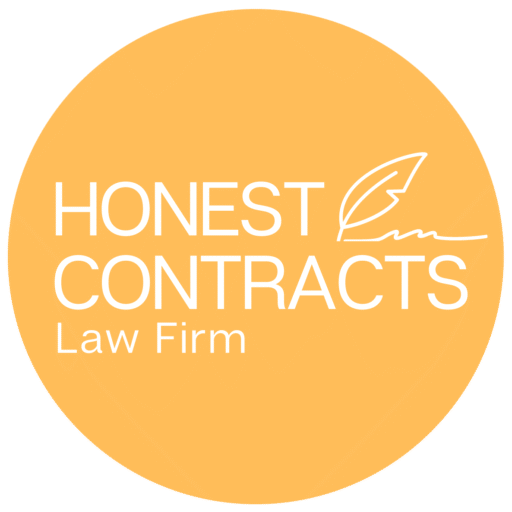Are noncompetes legal in New Mexico? Answers and best practices
October 19, 2025
By Nadia Cabrera-Mazzeo, Esq.
Employers have been using noncompete agreements to safeguard their secret sauce since the dawn of capitalism. Today, about 1 in 5 workers, or about 30 million employees, are subject to a noncompete agreement. The fact is, 1 in 5 workers don’t actually know a company’s trade secrets. While noncompetes can protect an employer’s legitimate business interests, they are often abused to limit workers’ freedom and stifle competition. This blog post focuses on noncompetes in employment contexts. Noncompetes in other contexts, like when a person sells a business and then promises not to compete against that business, are a different story.

The Jimmy John’s case illustrates how noncompetes went off the rails
The popular fast food chain Jimmy John’s settled several lawsuits claiming that its noncompetes were illegal and unenforceable. For decades until 2012, Jimmy John’s minimum-wage workers were made to sign a noncompete agreement that essentially prohibited them from working at any sandwich shop within 2-3 miles of a Jimmy John’s for 2 years after leaving their job at Jimmy John’s. One of Jimmy John’s arguments in its defense was that it had never actually enforced that prohibition. Nevertheless, the effect of the noncompete was to scare employees into staying at a job even when they wanted to leave and to disincentivize Jimmy John’s from raising wages, since its employees were locked in. As part of the settlement, Jimmy John’s had to notify all of its employees and franchisees that the agreements they signed were unenforceable.
The feds almost banned noncompetes
In 2024, the Federal Trade Commission (FTC) finalized a rule to completely ban noncompete agreements. As always, someone sued and a Texas judge stopped the new rule in its tracks. Under the Trump administration, the FTC abandoned its appeal in the case and let the rule die for now. But the agency is still cracking down on big companies that use non-competes in ways that stifle competition and limit the mobility of low-level workers.
Noncompetes are generally legal in New Mexico, but they must be reasonable
New Mexico, along with 34 other states, still recognizes the enforceability of noncompetes but has imposed restrictions. For example, noncompetes in NM are generally not enforceable against attorneys or healthcare professionals. Noncompetes are enforceable if they are reasonable and not against public policy. NM courts look at the duration and geographic limits for the noncompete. They also balance the employer’s need for protection with the public’s need for that type of work. NM courts have also ruled that if an employee is fired without cause, a noncompete agreement cannot be enforced against them.
Best practices for enforceable and ethical noncompetes in NM
Employers with legitimate trade secrets to protect may use noncompete agreements as a tool but should do so sparingly, narrowly, and only with employees who truly know proprietary information. The following are some best practices for enforceable and ethical noncompetes in NM:
![]() Limit the geographic area of the noncompete to one or a few cities or counties, not the entire state (entire state is enforceable but less kind to employees);
Limit the geographic area of the noncompete to one or a few cities or counties, not the entire state (entire state is enforceable but less kind to employees);
![]() A one-year timeframe or less is reasonable and generally accepted;
A one-year timeframe or less is reasonable and generally accepted;
![]() Make it narrow and consider fairness— was the employee trained in that subject area by your company or were they already working in that field before you hired them? Is it fair to prevent an employee from getting a similar job? Does your need for secrecy outweigh the public’s need for that type of work?
Make it narrow and consider fairness— was the employee trained in that subject area by your company or were they already working in that field before you hired them? Is it fair to prevent an employee from getting a similar job? Does your need for secrecy outweigh the public’s need for that type of work?
![]() For current employees, time the non-compete to align with a raise or other new benefit. It
For current employees, time the non-compete to align with a raise or other new benefit. It
can get legally iffy (meaning the noncompete may be unenforceable) when an existing employee is made to sign a non-compete and all they get in return is the privilege of keeping their job.
Other tools are available to protect legitimate business interests
Non-solicitation and nondisclosure agreements often go hand-in-hand with noncompetes but can provide essential protections on their own without restricting a worker’s rights.
![]() Non-solicitation agreements prohibit employees from poaching a company’s workers, clients, leads, etc.
Non-solicitation agreements prohibit employees from poaching a company’s workers, clients, leads, etc.
![]() Non-disclosure agreements prohibit employees from sharing confidential and proprietary information after they leave a company, sometimes indefinitely. There is also a very well-developed area of law around trade secrets in the U.S. that provides companies with avenues for protecting proprietary information.
Non-disclosure agreements prohibit employees from sharing confidential and proprietary information after they leave a company, sometimes indefinitely. There is also a very well-developed area of law around trade secrets in the U.S. that provides companies with avenues for protecting proprietary information.
Noncompete agreements are not inherently bad but free rein to use them in any context has led to unjust consequences and lawyers have played a major role in that. Employers who want to protect their interests without unnecessarily limiting their employee’s rights should seek out a lawyer who will look beyond the standard language that goes in most contracts and can present less restrictive options for their employer clients.
Honest Contracts is available to write thoughtful agreements that protect employers’ interests while promoting respect and appreciation of employees and their contributions.

Law office of Nadia Cabrera-Mazzeo, Esq.
Small business and contracts lawyer
Based in Taos, serving clients throughout New Mexico
505 427 2025
nadia@honestcontracts.com
The information on this website is not legal advice and does not create an attorney-client relationship. The rates and fees listed on this website may not be the most up to date.

